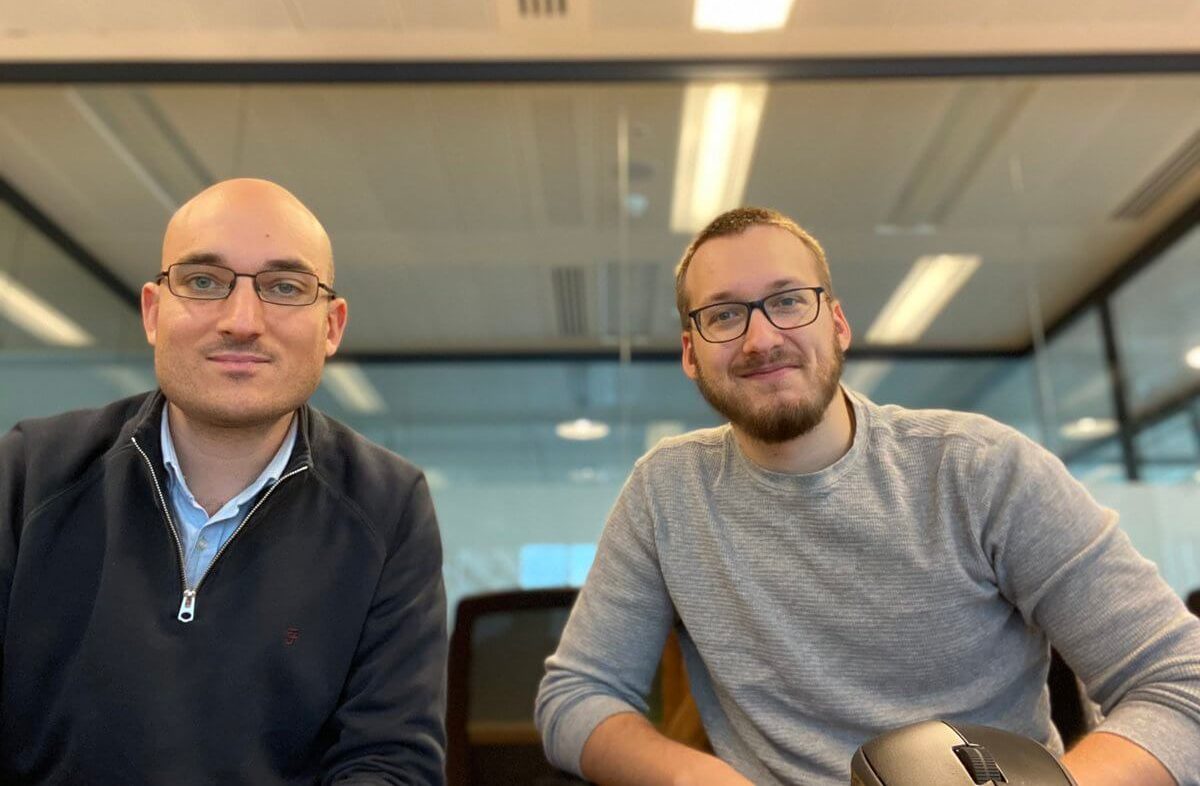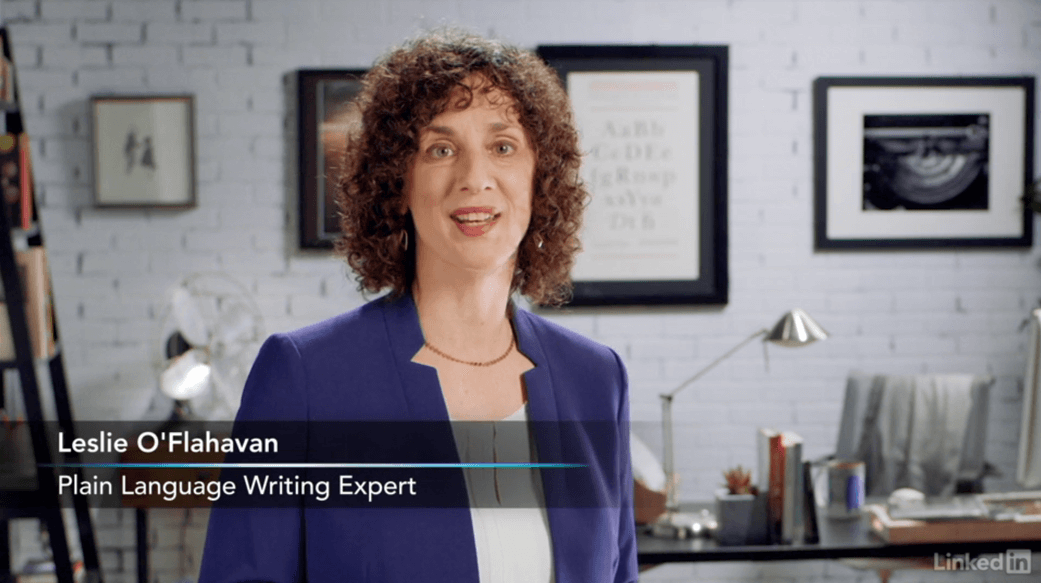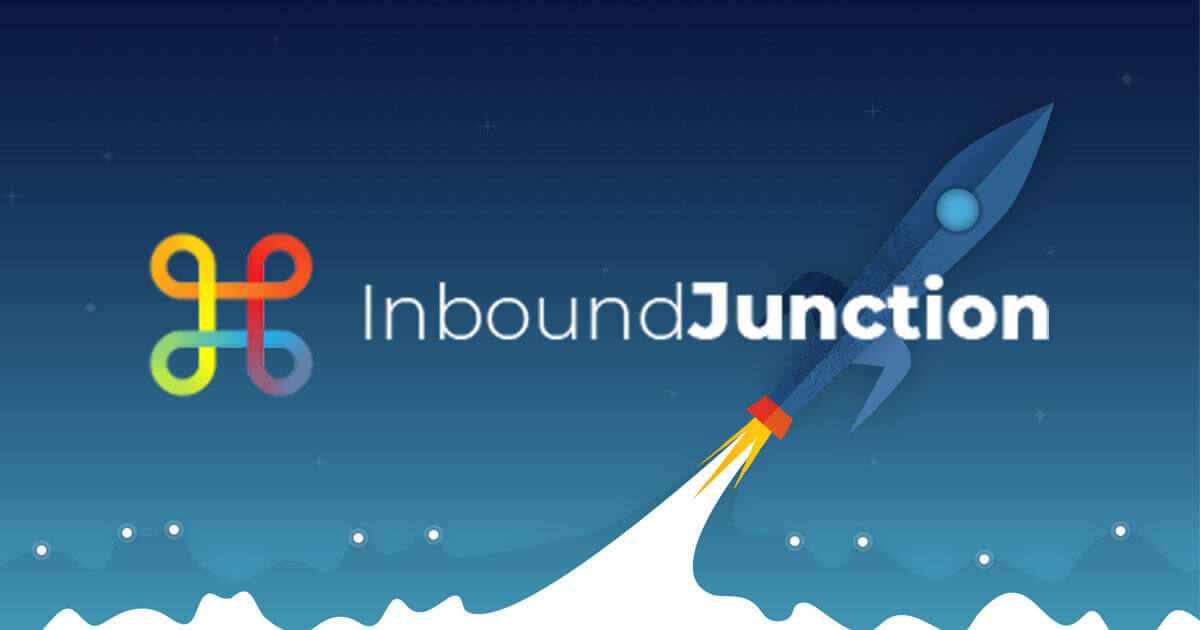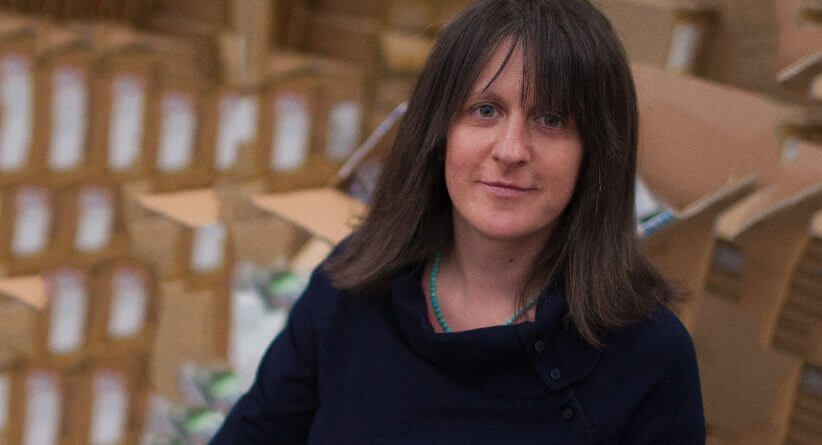Whatever industry you're working in, you've probably chosen BigCommerce as a platform for start selling online. But the competition within eCommerce sales has grown since the COVID-19 pandemic started in 2020 as businesses understood that the optimal way to continue in this situation is only going online. In today's interview, we'll talk about the marketing efforts considering the current conditions of running your business with an eCommerce marketing expert - Luigi Moccia from Calashock. So, let's get started then!
Who is Luigi Moccia?
Luigi Moccia is a founder and CEO at Calashock eCommerce agency, BigCommerce advocate, and co-host off The BIG, commerce podcast.
 Luigi Moccia with his colleague from Calashock Estonia. Source
Luigi Moccia with his colleague from Calashock Estonia. Source
Luigi Moccia about his career, his company, achievements, and failures
Question: How did you start and where are you now as a marketing expert?
I started the agency about 12 years ago as a marketing consultancy, and for the last 10 years, we’ve been focused on eCommerce. We’re working exclusively on the BigCommerce platform. But we also support not only the marketing on the actual workshop project but we’re also kinda intense about that integrated marketing channel like SEO and social media engagement.
Q: What are the most favorite and the most challenging aspects of your job?
Luigi: As you can imagine, we’re working with clients in a lot of geographical areas and we get a variety of different projects. And that’s not necessarily just a different area that the customer is based in but also their goals and objectives they have through that company or project. Each company is unique, each business is unique, and therefore that kind of translates into their project. Some customers want to increase their sales, others want to increase brand awareness, etc. So, each firm's projects vary in some respects. And it's also good because it means that you can offer a slot from a different angle in terms of how you want to project the campaign.
One of the most challenging aspects is certainly around the customers who know it all and the ones that want to work with you but want to work with you on their terms. So, they come out with things that they’ve always done in this way and this is what the customer wants. And, from our perspective, the question they are asking you is “You’re not the client, how do you know that this is what the client expects? How do you know that the client is going to react positively to what you are doing? ” So, such companies always believe (sometimes right, but most of the time - wrongly) that they’ve always done things in another right way. That’s the wish they want in a digital way, because what we do as a marketing firm, whenever we run a marketing campaign, we concentrate on the ROI (Return on investment). For every pound, or dollar, or euro the client gives you, they want to get 2 pounds, dollars, or euros back in terms of sales. So, it’s really kind of important that we find the right fit to suit not only the customer’s objectives and goals, but also make sure that we can demonstrate that work to a merchant. So, if somebody’s pushing back against us, saying: “No, it’s not going to work, we need to do it this way”, then we can’t do our job as effectively as we would like to.
Q: What are your biggest achievement and your biggest failure?
Luigi: I am a big believer in niches and specializing in what you do. We are not a full-service agency, I don’t really think that you can be a specialist in everything. From our perspective, the biggest achievement is that we are trusted by mid-market and enterprise brands on a global scale, to execute the projects on their behalf. What else we do is work with large SMB businesses. The fact that we’ve got some names that are recognized on the international stage come to us and trust us means that we’re working towards allowing us to bring such clients on board. We’re always going up to work with brands that were once just inspired to work with.
I don’t tend to look at kind of failures as a negative experience necessarily, just looking for the positive in a particular situation, on how we can improve to make sure that it won't happen again.
In terms of failure, I’m a believer that there’s not such a thing as regret lessons. So, I don’t tend to look at kind of failures as a negative experience necessarily, just looking for the positive in a particular situation, on how we can improve to make sure that it won't happen again. One of the things that I would probably say (certainly from the agency side anyway), is that you need to treat yourself as a customer. Our marketing through years suffered because we were putting too much emphasis on customer work. But the main problem is when these campaigns are done if you haven’t market it in the meantime, if you haven’t nurtured your own marketing, then you’ve got no pipeline. Then, you’re not proactively looking for business, you’re just reacting, which means you don’t have that pipeline anymore.
So, I think, whatever you do, if it's a service that you offer that your own business yourself could use or does use, then you should treat yourself as a client for sure.
How to become a successful marketer
Q: What are the three most important qualities for a marketing specialist and how they can assist on the way to success?
Luigi: Marketing ultimately is communication which any business needs to do. It needs to communicate with its clients, stakeholders, and so on.
So, obviously, treat yourself as a customer, as I’ve already said. But also one of the main things I consider important for a marketing specialist is once you get into the specialism and you enjoy being in that specialism, you need to have that passion to do the best job possible. Because you’re not taking a box picking it up and putting it on another side of the room. You have to add value. So, you need to have passion for what you do.
You’re not just taking a box picking it up and putting it on another side of the room. You have to add value. So, you need to have passion for what you do.
The third is “Don’t chase the money, add value”. People come to marketing agencies because they need help because they want you to help them with something that they can’t do themselves. And if you can add value to that, if you can say: “if you’ve come to me, I’m going to help you, your expectations are here, but we’re going to aim slightly higher.”, then it’s going to bring the return as well. Because you are helping a client to grow. And the more they grow, the more they want to invest in you. And that kind of relationships matter.
So, treat yourself as a client, become a specialist, and add value.
Q: Do you have an everyday ritual at your company to achieve success?
Luigi: We are very particular about the people we hire because it is a very important element in our business. And, again, it relates to the previous point, when I said about passion and value. If you’ve got people that don’t add to that value, you’ve got people that don’t really care about sharing your passion. Then, you’re not going to get the best out of them, as they’re not going to contribute to your business. So. you need to make sure you have the right team around you.
Out of that, we’ve built some core values, which form the basis of what people we hire and the way that we work. And, the communication, making the people want to feel a part of a team. But it depends on the size of your business, per hour calculation is quite flat because everyone contributes to the business, not only one or two people. And everybody has a part to play in the success of our agency and in the success of our clients. So, we’re very inclusive in that respect as well.
Our culture is very important. A lot of people just see a binary “employee-employer”. If you haven’t got an employer, you haven’t got a job. But if you haven’t got employees, you wouldn’t have clients. So, it’s important to appreciate that dynamite.
About COVID-19 pandemic and its influence
Q: Is COVID-19 a threat or an opportunity to your work?
Luigi: I don’t have a single answer to that, I think it’s both a threat and an opportunity. We work in eCommerce, so eCommerce is becoming extremely busy, space is becoming crowded. So, how do you stand out from the crowd? You need to market. You need to differentiate that you need to ultimately communicate those elements. And, so from that perspective, it’s an opportunity. There are a lot more clients, there are people that either have to pivot or start to realize that they should’ve gone online years ago.
The threat, however, is that it takes a bunch of time. Unfortunately, marketing is not giving an immediate return on investment and it has to be well-executed. So, if you’ve got to make some money for the bank, you’re balancing between spending money on marketing, or whether to buy some new product and sell it. If you buy that product for some price, you market it and you sell it, that makes you an immediate return on investment. And marketing, on the other hand, has to be really well-executed in order to bring you a return on investment. It may take you a few weeks or a few months to give you the ROI. And if it’s tangible, some people don’t really appreciate it for what it is. We see it with big brands as well, it’s not only the small businesses that cut it. I think that’s the threat, marketing is often underappreciated from the perspective of the project. But if you stop marketing, you’ll disappear off the face of the planet. If you disappear, you don’t get the sales, and your business is all done.
I think COVID is all about the balance between it being an opportunity and a threat.
Best marketing channels and marketing trends
Q: Which marketing channels are the most relevant for you as of today?
Luigi: It really depends on your target audience and demographics. Though, if you’re targeting a millennial consumer, social media can be the first thing on that list. And if looking within that, thinking “Where am I targeting?”, then it’s going to be Instagram, X, Facebook, TikTok. If you’re targeting another business, then it’s LinkedIn. For certain demographics, products, companies, etc. on social media, and it really depends on your target audience. As I said earlier, it’s important to specialize and concentrate on the quality of things that you do, because you will know what works, what doesn’t. And, you’ll have the authority to be able to answer these kinds of client questions and back it up with some evidence as well.
A great thing about social media is that it gives you immediate co-defiable reportings. It allows you to see that you’ve spent $2000 on Instagram and it shows you the ROI, so you can look into these metrics. You’re not doing the paperwork and don’t have to do any estimates yourself.
Email marketing still has a really high ROI. And again, that’s something that has a really different demographic. The problem nowadays is that inboxes are so full that again you’re vying for rivals.
SMS and WhatsApp are kind of making a comeback which were all the rage 10 years ago. So that’s possibly another opportunity or a way of marketing to your clients.
And, finally, if you look at something like PWA or native apps, marketing to your customers, building some loyalty and trust around them, when they download your app you can market to them as well.
So, there’s no single way, everything depends on your client you’ve got, their demographic, and taste. For example, in Germany, WhatsApp is huge.
As an agency, we have a very wide partner network that we work through. We don’t do a lot of outbound marketing if I’m honest with you. We are using the example of a farmer to a hunter. We tend to be more on the farming side. We sow the seed, we nurture the ground, and we wait till the clients go out and hunt. But via social media, we don’t do any outbound marketing. I often think “When you look at that kind of marketing agencies that offer you a newsletter, I don’t really see the value you can add to that. So, on a B2B element when you work in long-term campaigns, they don’t really work.
So, ultimately, the best way to determine the best form of marketing is clients. We have our clients that refer to your business tools, clients that speak to prospects on the other half as well.
Q: How do you keep up with the latest marketing trends?
Luigi: I do personally follow experts of the industry on social media like X or LinkedIn. There, experts are more content-based, in comparison to Instagram, where the content is more visual.
I love planning consumer concepts and reading as much as I can about what’s going on in the industry. Especially, when it’s so fast-moving with all the new technology coming out.
Also, email sign-ups like Adweek, SAJ, Social Media Examiner, etc. the problem of that is that it can fill up and blow up your inbox, so you need to check it once every few days because it’s going to spend all your time just reading emails. I love planning consumer concepts and reading as much as I can about what’s going on in the industry. Especially, when it’s so fast-moving with all the new technology coming out. But also in the fact that with COVID we have to adapt, so it’s really important that we keep up-to-date with industry trends. But the problem is that it can really blow up your inbox. You can easily receive 50 emails a day, and it will become over 350 a week. Then, you’ll have to spend some time reading or at least deciding whether you’re going to read them or not.







